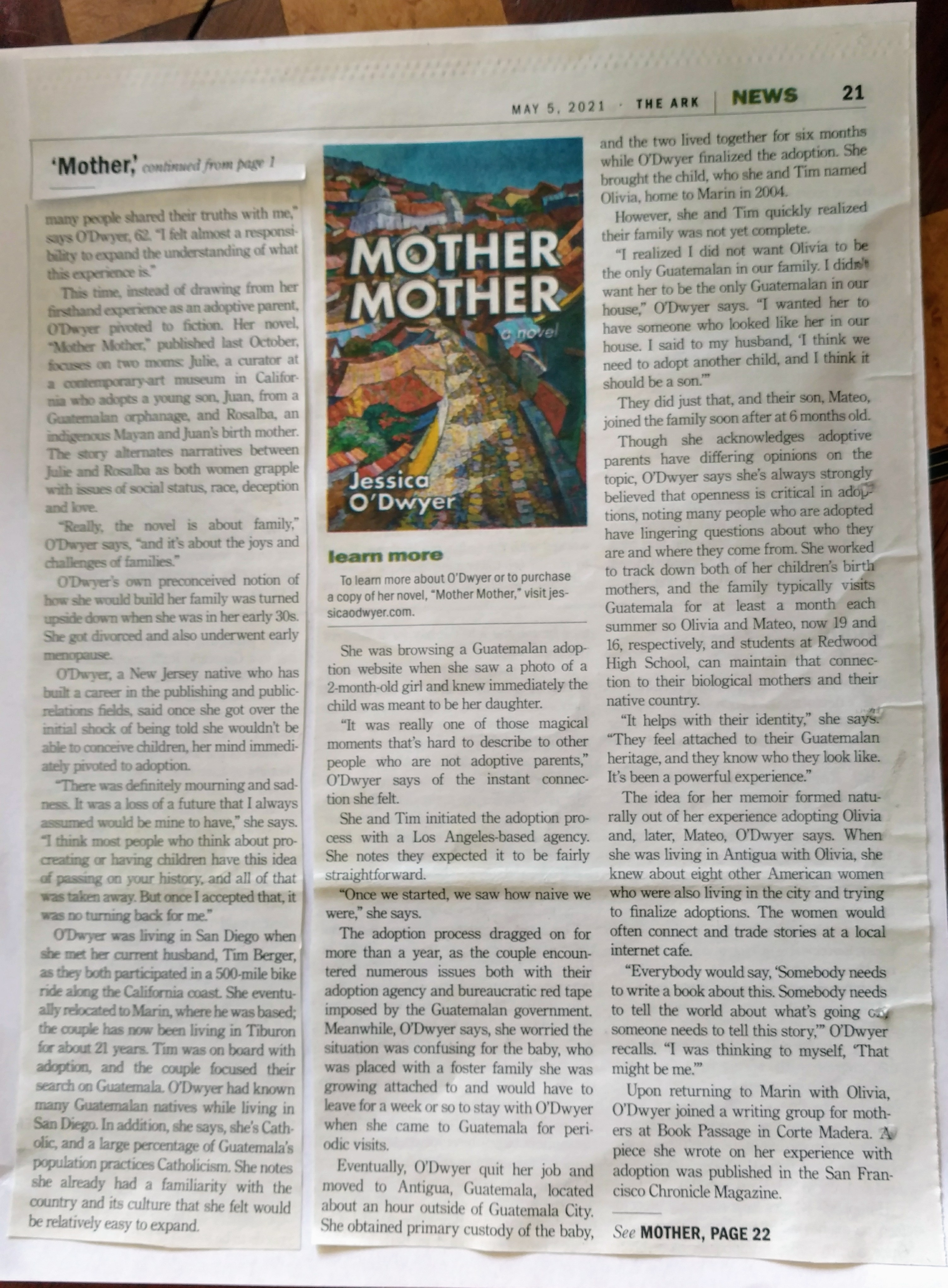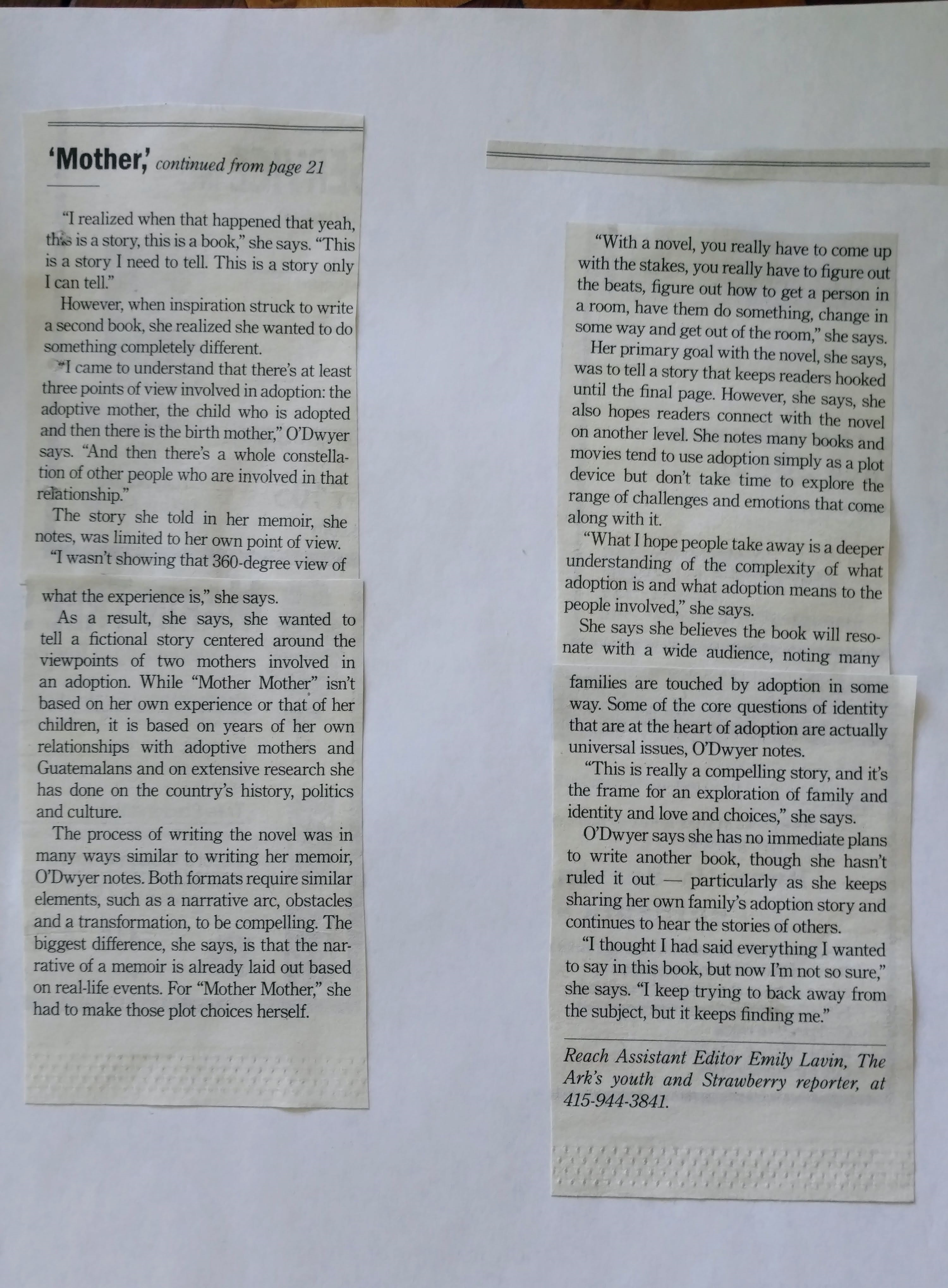“Hey 19”
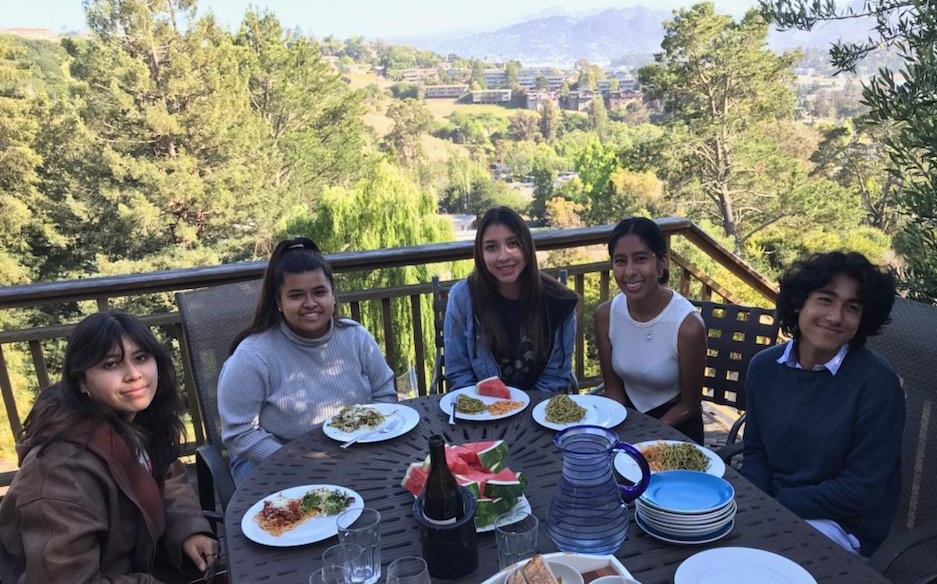
“Hey 19.” It happens fast. HBD, Miss O! We love you! xoxo
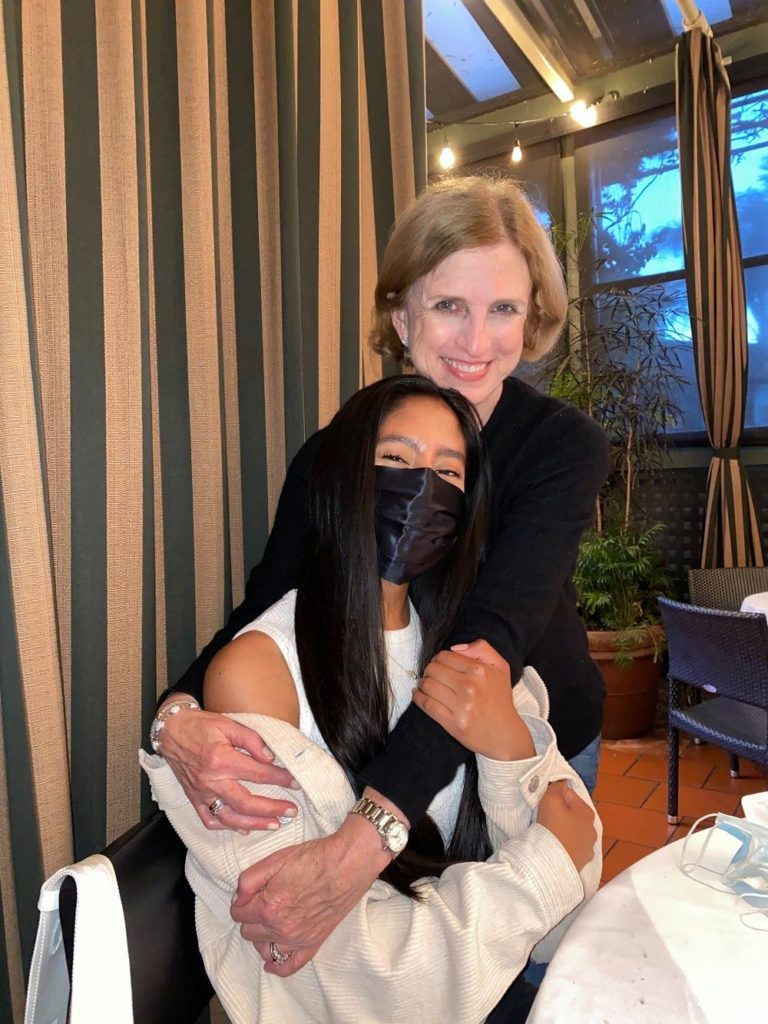
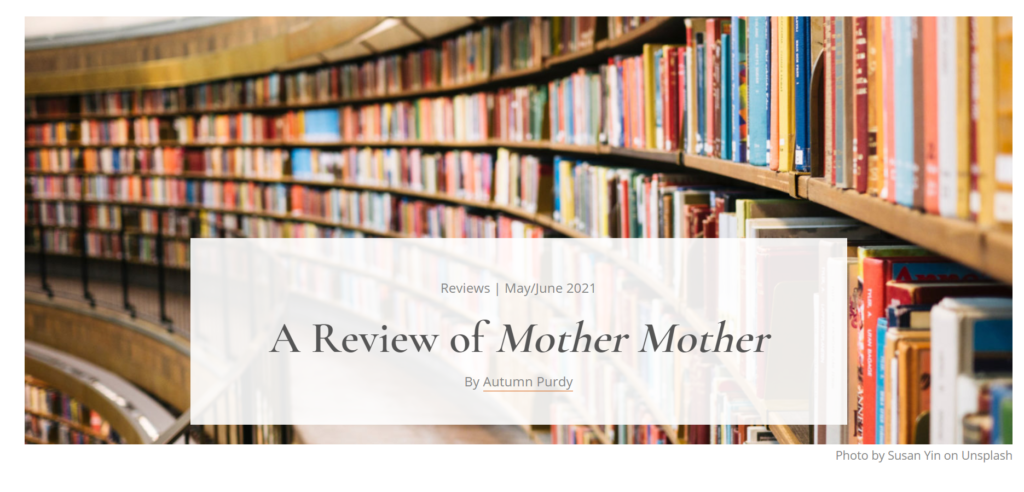
As a writer, I can’t ask for anything more than to have my intention understood in writing a book. Except maybe that a reader also loved the world of the novel and was moved by it. That’s why I’m honored and overjoyed by this review in Literary Mama by Autumn Purdy:
In the novel, O’Dwyer does not shy away from harsh realities, traumatic circumstances, nor graphic telling to give readers the most authentic and compelling adoption tale…. Though there are many unpleasant circumstances woven into the book, O’Dwyer writes a story that reads like a love letter for her children and their families of origin, and a lamentation for their birth country.
The review continues with an assessment of the relationship of adoptive parents Julie and Mark; Juan, the son they are adopting; and Rosalba, Juan’s mother in Guatemala.
Their family story takes off from here and, as readers are becoming acquainted with Juan, the novel flows seamlessly between the present day to the past. The author moves the tale backward seventeen years and introduces Juan’s birth mother, Rosalba, whose existence and sacrifice are imperative to the story. O’Dwyer writes the birth mother’s history in the first person which gives Rosalba, an indigenous Ixil Mayan woman, a clear and unforgettable voice as she shares her harrowing plight, from her origin story to the birth of Juan, and the incredible suffering she endured along the way….
O’Dwyer has a knack for character development and scene building, and a gift for telling multilayered stories without losing her audience. Not only does the author write with authoritative detail about the adoptive mother-son connection, but her writing offers, in equal measures, an affinity for Juan / Jack’s legacy and his birth mother, Rosalba, the woman who ultimately made Julie a parent. Rosalba’s chapters are some of the loveliest, most memorable parts of the book…. O’Dwyer’s writing style triumphs in the telling, begging her readers to grow in empathy, awe, and wonderment at the strength of this Guatemalan woman. I was engrossed in the storylines and dilemmas presented in this novel, and O’Dwyer’s rendering of what it means to be an adoptive family, the complexities of the mothers and fathers involved, and the intricate web of DNA and choice that weaves families together in unforeseen and often, unbearable ways.
Finally, the review concludes with a recommendation to read the book:
A story of how two mothers are forever connected by the son they share, Mother Mother is a novel whose battle cry declares victory despite the messy tangle of life. O’Dwyer writes a realistic and engrossing tale that shows how lives can be meaningful despite hardship and strife, true familial bonds are both birthed and formed, joy can be found amidst the surrounding and penetrating darkness, and love grows even in tumultuous times. Ultimately, the strength and resilience factors of Julie and Rosalba, the two mothers at the center of Juan / Jack’s story, are reason enough to pick up this book and begin reading.
Thank you to Autumn Purdy and Literary Mama. And thank you for reading the entire review here.
Review of Mother Mother on Literary Mama Read More »
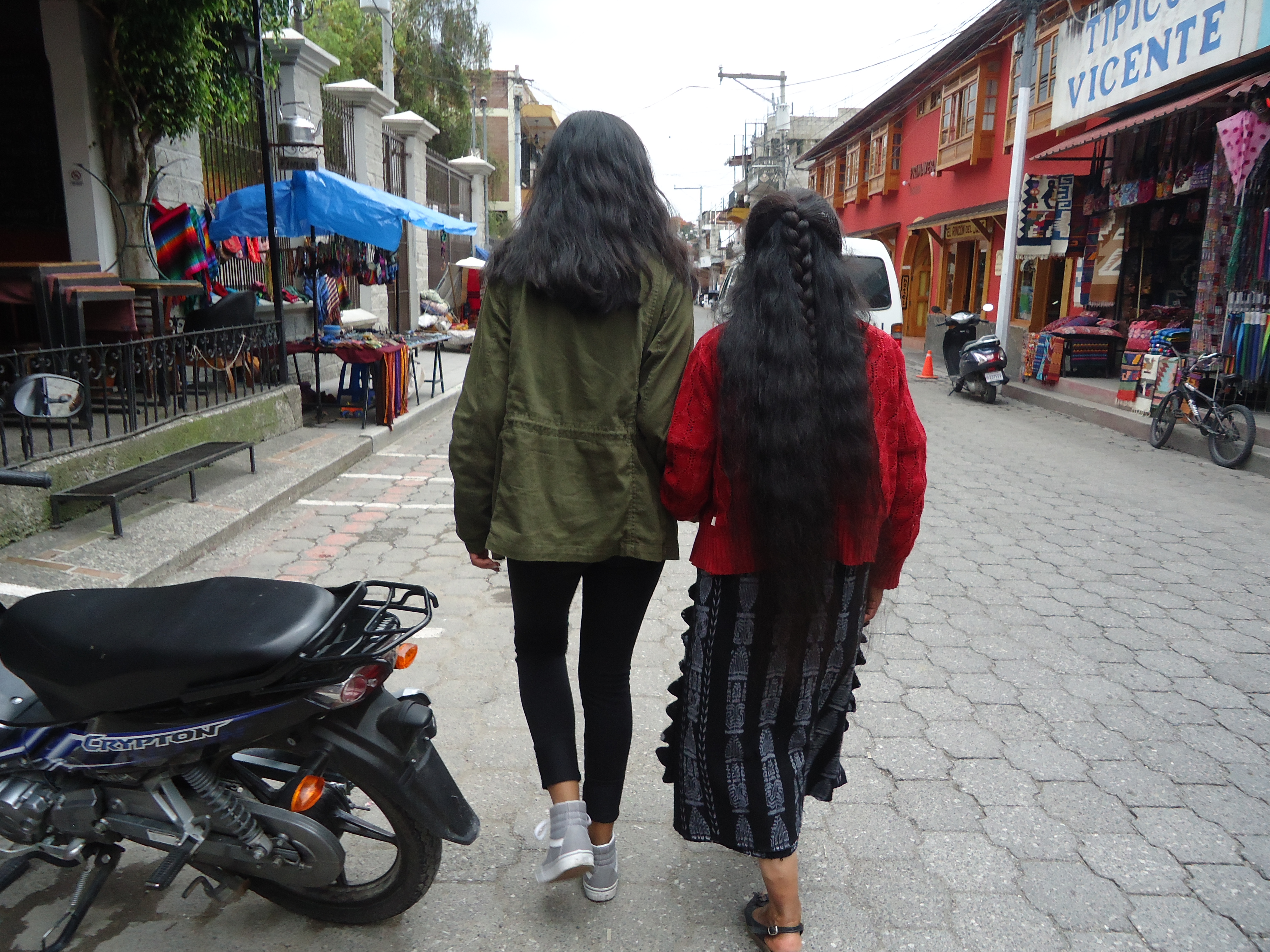
My post about family and belonging is up on Scary Mommy. I’m thrilled!
My post on Scary Mommy Read More »
Supporting other writers any way I can is something I’m always willing to do. Writing is solitary work until your book comes out and then it’s all about community. Here’s my review of a memoir I recently read, Bayla Gittel’s A Legacy: Echoes of Loss and Healing in a Jewish-American Family. Hope you enjoy! ~
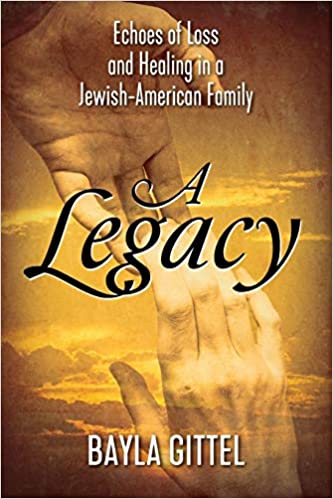
Bayla Gittel’s memoir, A Legacy: Echoes of Loss and Healing in a Jewish-American Family, is candid, illuminating and well-told. By tracing six generations of her family, Gittel reveals patterns that repeat, with repercussions felt in her own life and the lives of her children. Gittel’s account of her disintegrating marriage, once so filled with promise and optimism, rings with tragic authenticity. Echoes from her ancestors’ biographies continue to reverberate. This sweeping examination of kinship and roots confirms the words of Katherine Anne Porter: “The past is never where you left it.” Indeed, as Gittel’s memoir confirms, the past is often right in front of us, ours to cope with as we will. Brava to Bayla Gittel for finding courage to tell her story.
— Jessica O’Dwyer, award-winning author of Mother Mother: a Novel and Mamalita: An Adoption Memoir
Review of Bayla Gittel’s memoir, A Legacy Read More »
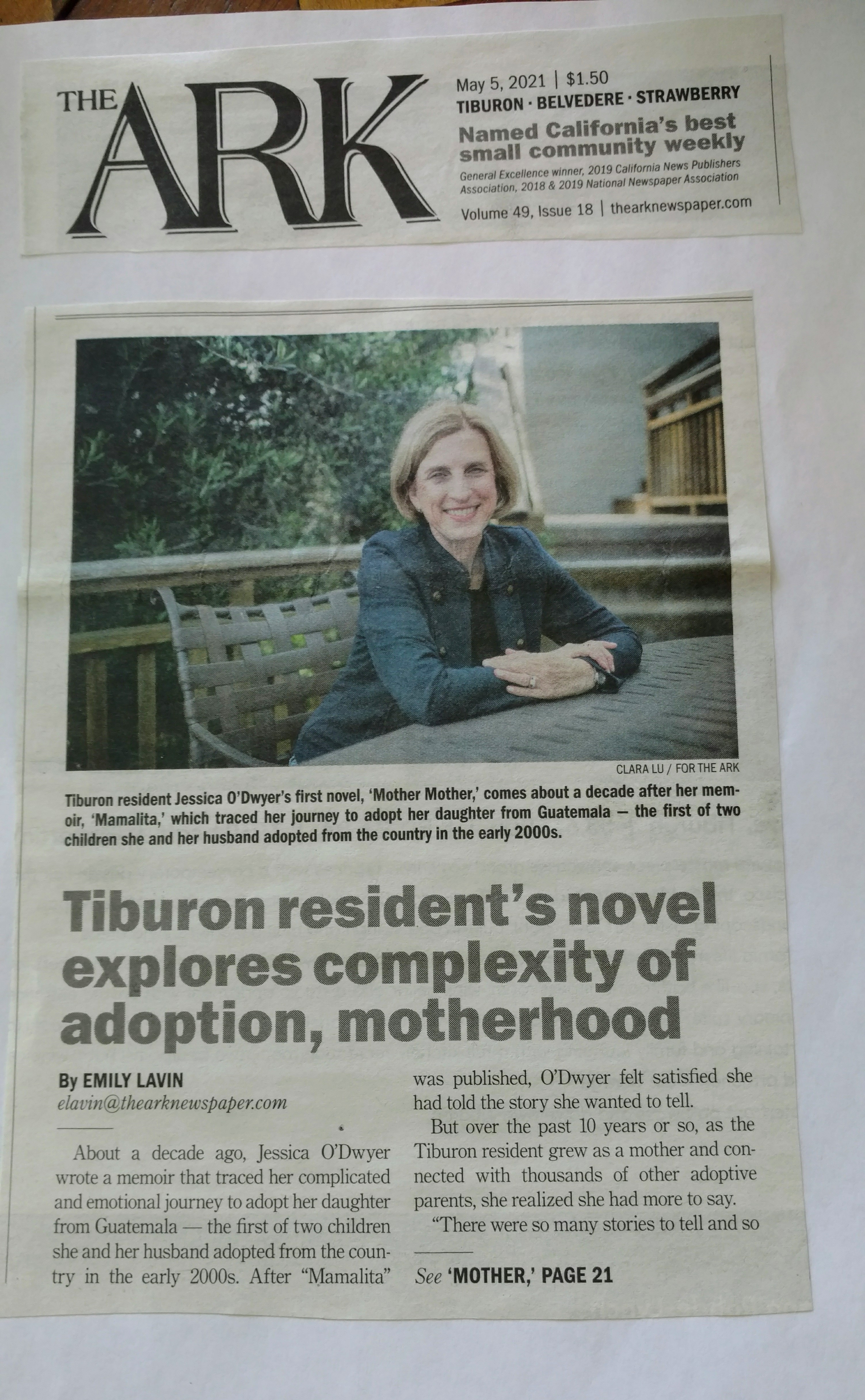
Our town’s weekly newspaper, The Ark, ran a wonderful, in-depth profile of yours truly—front page! above the fold!—written by Emily Lavin with a terrific photo by Clara Lu. Titled “Tiburon resident’s novel explores complexity of adoption, motherhood,” the piece recaps my writing journey from Mamalita to Mother Mother. I’m so grateful to The Ark for its support of local authors and artists!
A few quotes:
“O’Dwyer, a New Jersey native who has built a career in the publishing and public relations field, said once she got over the initial shock of being told she wouldn’t be able to conceive children, her mind immediately pivoted to adoption. ‘There was definitely mourning and sadness. It was a loss of a future that I always assumed would be mine to have. I think most people who think about procreating or having children have this idea of passing on your history, and all of that was taken away. But once I accepted that, it was no turning back for me.’”
“She was browsing a Guatemalan adoption website when she saw a photo of a 2-month-old girl and knew immediately the child was meant to be her daughter. ‘It was really one of those magical moments that’s hard to describe to other people who are not adoptive parents,’ O’Dwyer says of the instant connection she felt. She and [husband] Tim initiated the adoption process with a Los Angeles-based agency. She notes they expected it to be fairly straightforward. ‘Once we started, we saw how naïve we were,’ she says.”
“Her primary goal with the novel, she says, was to tell a story that keeps readers hooked until the final page. However, she says, she also hopes readers connect with the novel on another level. She notes many books and movies tend to use adoption simply as a plot device but don’t take time to explore the range of challenges and emotions that come along with it. ‘What I hope people take away is a deeper understanding of the complexity of what adoption is and what adoption means to the people involved,’ she says.
“She says she believes the book will resonate with a wide audience, noting many families are touched by adoption in some way. Some of the core question of identity that are at the heart of adoption are actually universal issues, O’Dwyer notes. ‘This is really a compelling story, and it’s the frame for an exploration of family and identity and love and choices.’ O’Dwyer says she has no immediate plans to write another book, though she hasn’t ruled it out—particularly as she keeps sharing her own family’s story and continues to hear the stories of others. ‘I thought I had said everything I wanted to say in this book, but now I’m not so sure. I keep trying to back way from the subject, but it keeps finding me.’”
